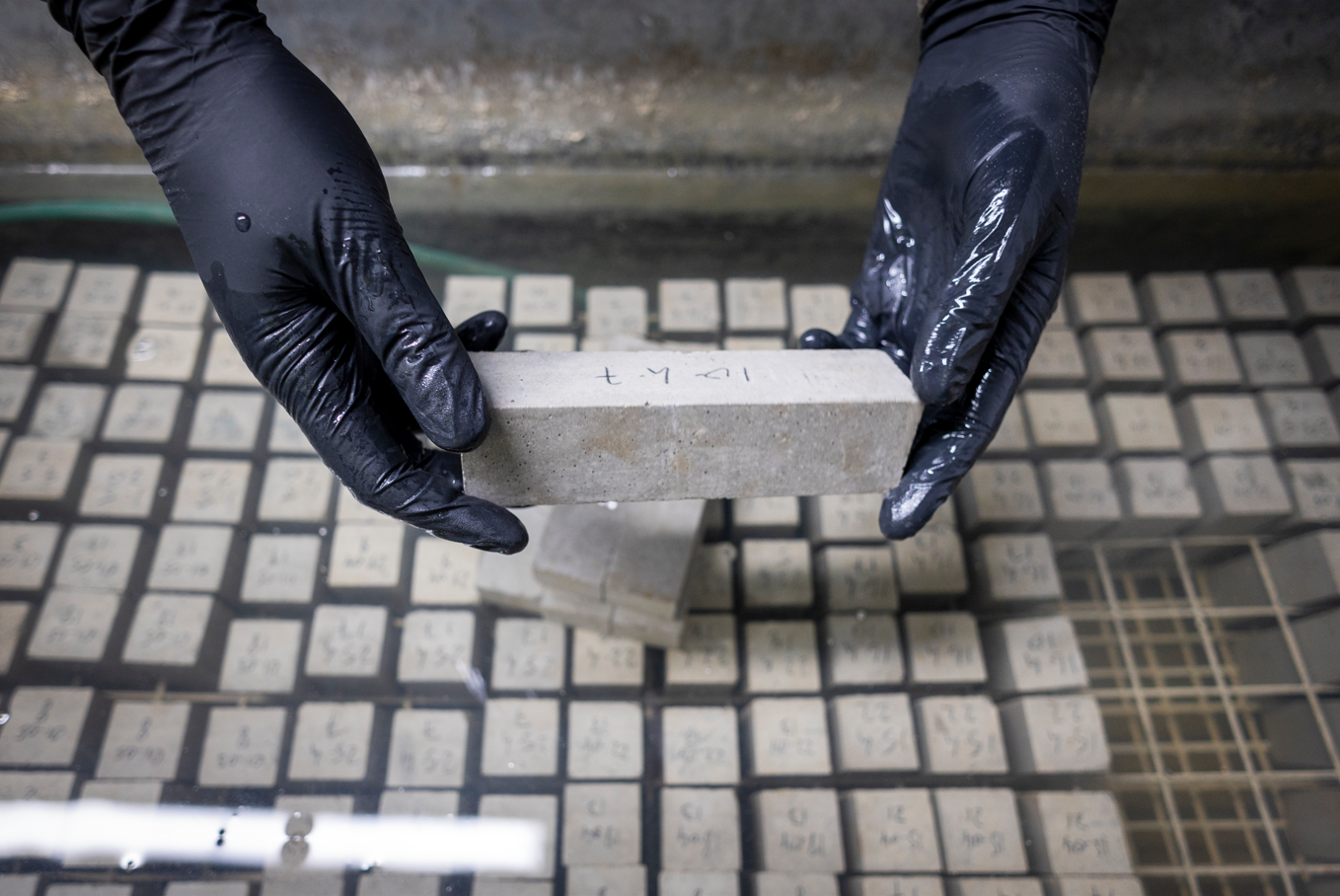
Paris, 17 June 2025 – Ecocem, Europe’s leader in low carbon cement, has obtained a Technical Evaluation of Products and Materials (Evaluation Technique de Produits et Matériaux, or ETPM) in the French market for ACT1, the first version of its groundbreaking scalable cement technology. This recognition is a key milestone in the qualification process for ACT, and represents a major step towards its large-scale deployment on French construction sites.
The ETPM, issued by the CSTB (Centre Scientifique et Technique du Bâtiment, or Scientific and Technical Centre for Building), assesses the performance and durability of innovative products or materials that do not yet fully align with existing standards. In the case of ACT1, Ecocem chose to undergo the voluntary assessment to demonstrate the technology’s qualities. The ETPM enables the certification of mechanical performance and durability of concrete made with ACT1, ensuring its compliance with Eurocodes (European structural design codes).
The assessment also enables Ecocem to lay a solid scientific and technical foundation for further upcoming evaluations in France, including the ATEx (Appréciation Technique d’Expérimentation or Experimental Technical Assessment). This verification, expected in the second half of 2025, will evaluate the safety and viability of using ACT1 in structural applications, such as walls, columns, beams, slabs cast in place, infrastructure projects, and shallow foundations.
Ecocem obtained a European Technical Evaluation (ETE) for ACT in early 2024, paving the way for CE marking of the technology. However, to ensure the rapid and safe implementation of its technology in France, Ecocem decided to pursue a comprehensive national assessment approach with CSTB, combining ETPM and ATEx evaluations.
Christian Clergue, Director of Product Development and Standardisation at Ecocem, commented: “To guarantee the swift deployment of our ACT technology in the French market, it was essential that Ecocem opted for the most relevant national technical assessments. This assessment provides clear evidence of ACT1’s workability, durability, safety and strength, demonstrating it is safe to use across the construction ecosystem.”
The ETPM and ATEx evaluations provide construction stakeholders — including project owners, contractors, insurers, and control offices — with a clear and well-documented assessment of ACT1’s workability, durability, safety and strength in construction projects, while accelerating the integration of ACT into ongoing and future projects.
ACT1 is the first iteration of Ecocem’s ACT an innovative scalable technology that can reduce the carbon footprint of cement manufacturing by up to 70%. Additional versions of the technology are due to follow, which will be subject to the same regulatory assessments across pan-European and local regulatory bodies.
_________________________________________________________________________________________
Developed over a decade of intensive research, ACT represents a major advancement in cement decarbonisation. It reduces CO₂ emissions by 70% compared to the European average for cement emissions. ACT achieves this by maximizing the use of locally available supplementary cementitious materials (SCMs) while maintaining the required performance criteria for concrete, including durability, workability, mechanical strength, and cost-efficiency.
ACT is an exclusive technology that can be produced in most existing cement plants without significant investment or modifications and requires no changes to implementation practices on construction sites.
Ecocem executive John Reddy becomes the first Irish President of the Institute of Concrete Technology (ICT) which has a term of two years, and follows his term of Vice President of the organisation since 2023.
In his latest blog, Ecocem’s award-winning research scientist, Simon Blotevogel, speaks about research on Electric Arc-Furnace (EAF) slags, collaboration being the key to innovation, and how we are at a critical moment in our mission to decarbonise the cement industry.